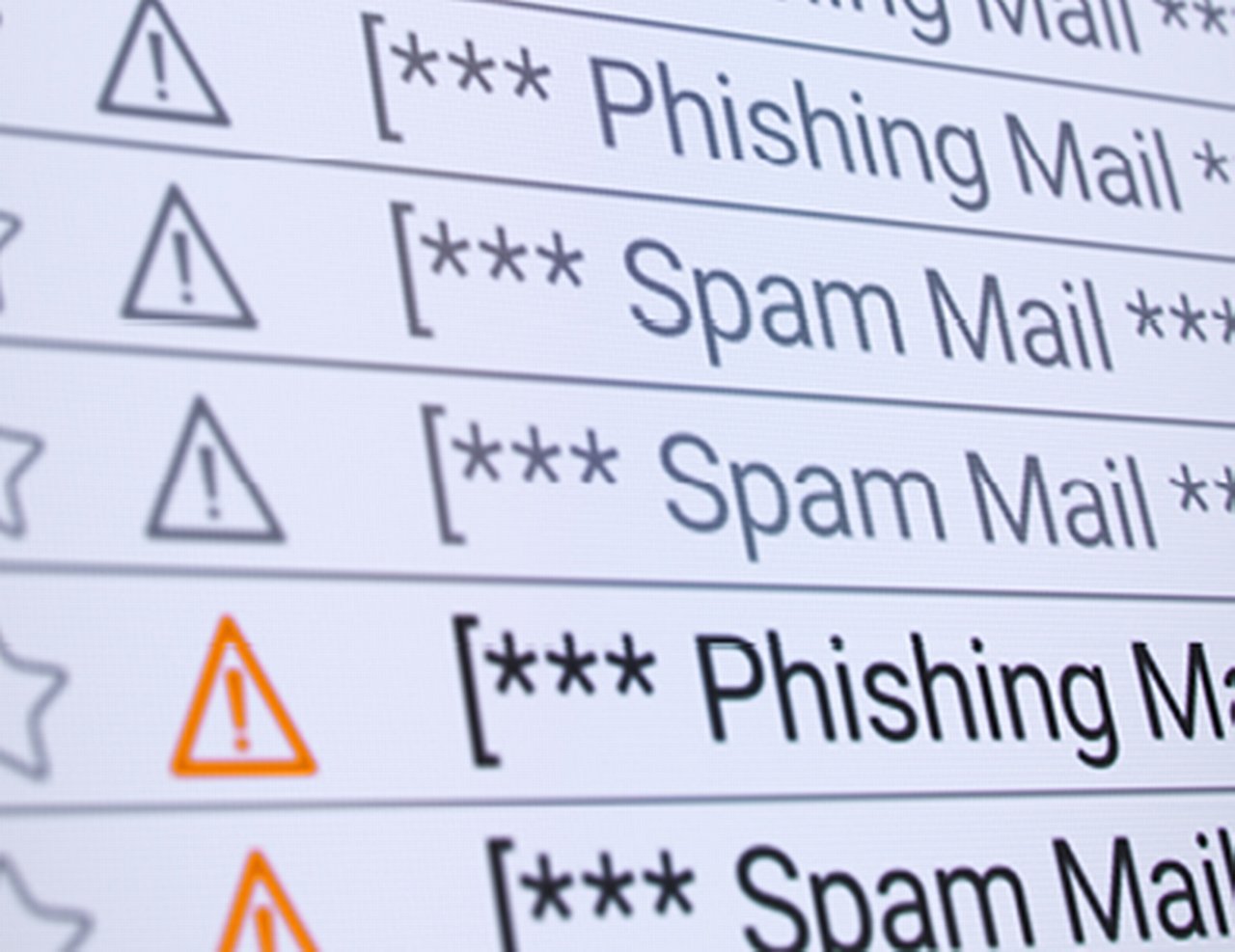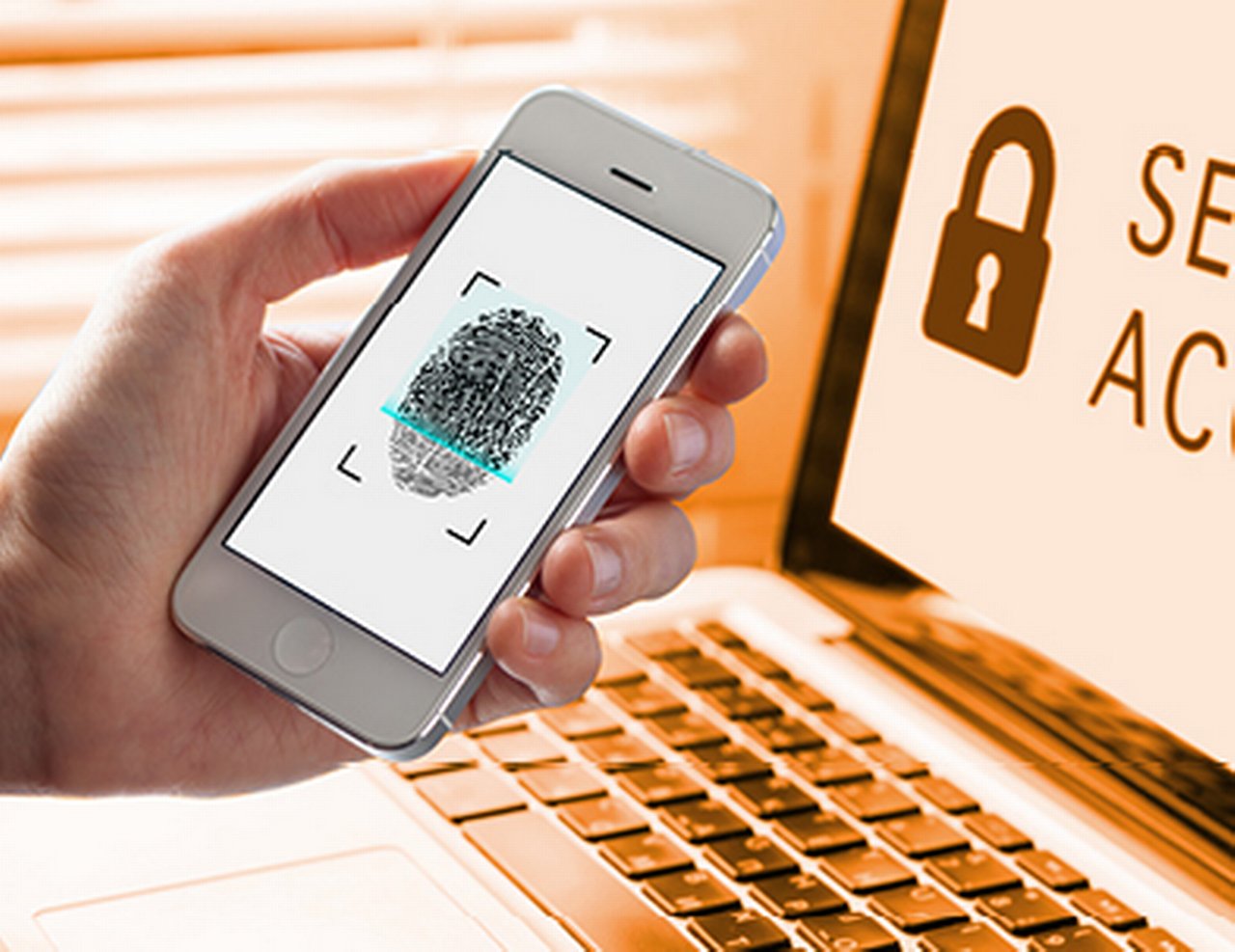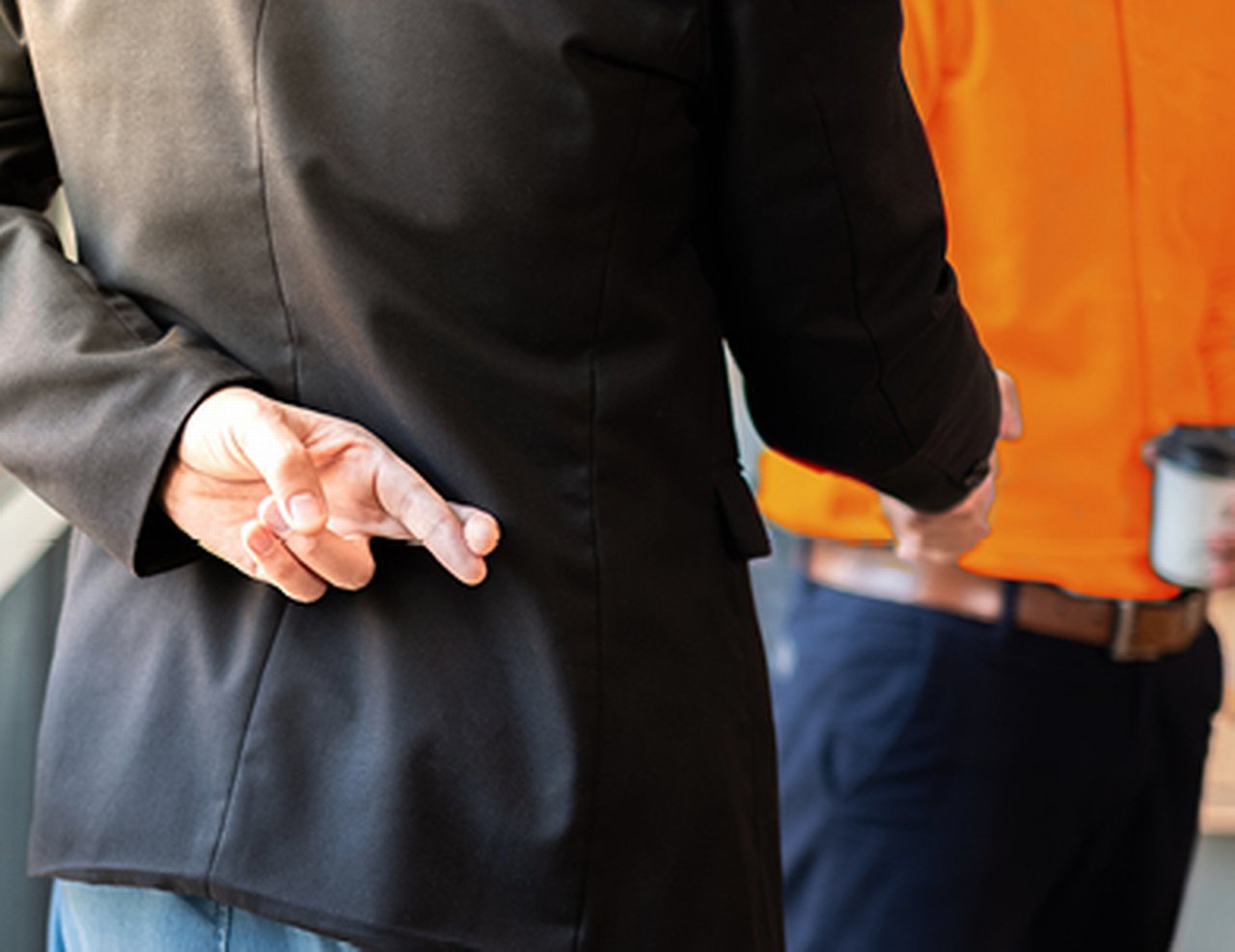Travelling brings new experiences and can offer a chance for relaxation, but it can also provide uncertainties. It’s important to prepare for some of the risks, particularly those related to security. To ensure that you don't experience any nasty surprises, both during your trip and after your return, we have compiled a detailed vacation checklist for you.
Our security tips for your trips can help you avoid becoming the target of criminals, stay healthy, and be prepared for possible incidents.
We wish you pleasant and carefree travels!
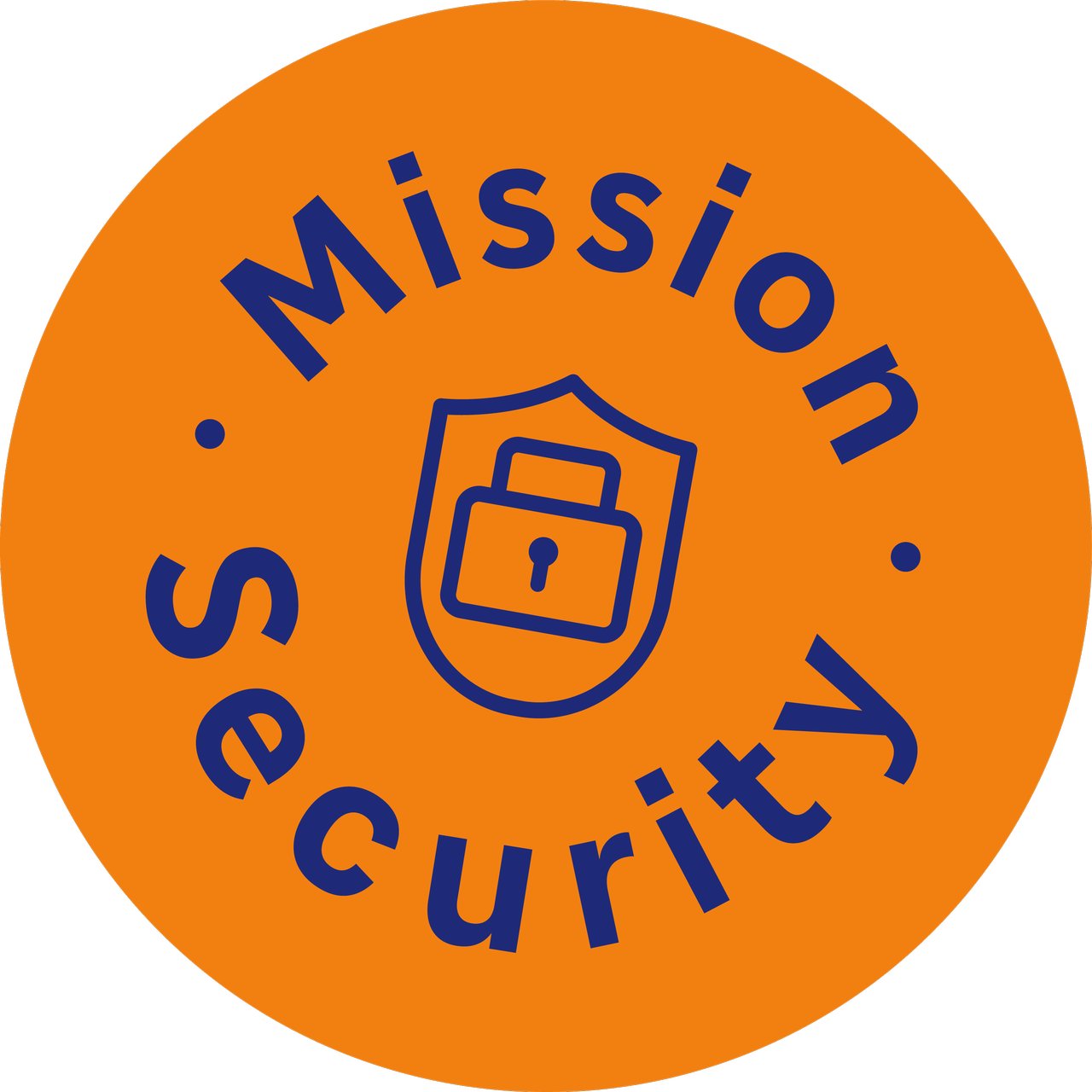
Key points:
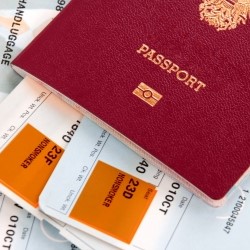
Before departure, travel documents, insurance policies, and means of payment should be checked, emergency numbers saved, and copies of important documents secured. Digital devices should also be secured with updates and password protection.
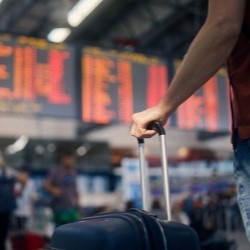
During the trip: Carry a limited amount of cash and valuables, use the hotel safe, be vigilant in crowds, and rely on secure internet access (mobile data or VPN instead of public WLAN).

Stay in regular contact with family or friends and share travel plans. However, avoid publicly posting on social media that you are on vacation – this can draw burglars' attention to your empty home.
Before Your Vacation
![]() Start Well-Informed
Start Well-Informed
Research your destinations early. Learn about potential health and safety risks and how best to protect yourself from them. You can find reliable information on travel portals, in current news, and on official government websites – for example, the Federal Foreign Office.
Save important emergency numbers in your smartphone and write them down on paper. In addition to the national emergency number of the destination country, this should also include the contact details of your embassy or consulate, the blocking numbers for credit cards and SIM cards, as well as service and emergency numbers for lost passports or driver's licenses.
Do you need to prepare for location or country-specific restrictions or events? For example, local holidays can lead to limited services and difficulties in accessibility.
Also, think about your banking: Before you leave, find out about possible restrictions on using your cards abroad and note down your bank's service hotline for emergencies. Check whether it makes sense to take several means of payment with you. For example, a combination of credit card, debit card, and some cash in the local currency. This way, you will still be able have options in the event of a lost card.
![]() Check Regulations, Documents, and Travel Data
Check Regulations, Documents, and Travel Data
Check the entry requirements of your destination: Are vaccinations, a visa, or an international driver's license required? Make sure that your identification documents, driver's license, and credit cards are valid, and clarify whether international health insurance is necessary.
Also, carefully compare the details of your reservations for accommodations, transfers, and rental cars with your travel plans. Discrepancies can occur, especially with more complex trips, for example, due to changing flight times or re-bookings. The sooner you notice discrepancies, the easier it is to correct, and you avoid stress and additional costs on-site.
Scan important IDs and travel documents so that you have digital copies available in case of loss. Save the files on a device that you are taking with you and also send them to your private email address. This way, you can access them from another device in case of emergency.
![]() What You Don't Take with You Can't Be Stolen
What You Don't Take with You Can't Be Stolen
Leave valuables at home if possible. Take only as much cash with you as absolutely necessary. And consider: Do you really need all your keys on the go? Anything that you don't need during the trip or immediately after your return should stay safely at home.
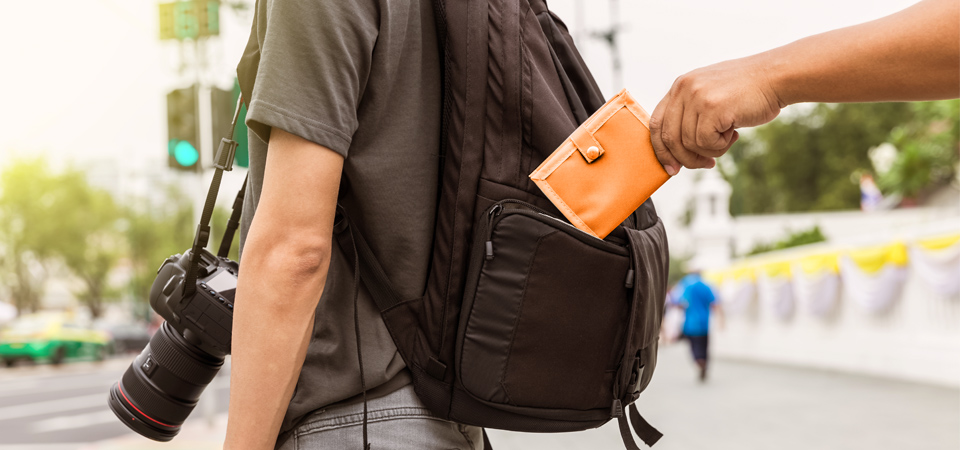
![]() Get Your Devices Ready for Travel
Get Your Devices Ready for Travel
Before you leave, secure the photos, contacts, and important files from your smartphone, tablet, or laptop with password protection or encryption on an external storage medium or in a cloud. This way, you still have a copy in case a device is lost or stolen on vacation.
Update the operating system and apps to the latest version before your trip. Updates close security gaps and ensure that your devices function reliably. It's best to leave automatic updates enabled so that you are also protected on the go.
![]() Off to the Digital Safe!
Off to the Digital Safe!
You may also need passwords and other access data on vacation. However, when written down on slips of paper or stored in a notes app, they are an easy target for thieves or prying eyes, especially when you're on the move.
Use the trip as a good opportunity to set up a password manager. This way, you have all your access data securely encrypted and stored in one place and readily available at any time – even on the go.
![]() Don't Give Potential Burglars Any Clues
Don't Give Potential Burglars Any Clues
An overflowing mailbox or a stack of newspapers in front of the door clearly shows that you are away and can attract burglars. Therefore, ask neighbors not only to water the plants but also to empty the mailbox while you are away. Cancel newspaper and magazine subscriptions in good time or have the delivery redirected.
Also, make sure that your home appears occupied. Roller shutters should not be permanently closed, and it makes sense to have lights on occasionally in the evening. Timers can help with this, for example.
![]() Everything Done Before Departure?
Everything Done Before Departure?
- Make important payments in good time, as you may have to rely on less secure network connections for online banking while on the go.
- Leave your house keys and contact details with neighbors, friends, or family during your vacation. Inform trusted individuals about your travel plans.
- Find out in advance how to get safely from the airport to your accommodation in your destination country. Arrange a pick-up if possible or use only officially licensed taxis.
- In case your suitcase doesn't arrive at the destination airport, pack important emergency items in your hand luggage. This includes, in particular, medications that you urgently need so that you can manage for up to 24 hours without your luggage.
- Make sure you have all the necessary travel documents with you on the day of departure before you leave the house.
- Avoid visible address tags with your private address on your luggage. This information could fall into the wrong hands and be misused for burglaries. Instead, use neutral luggage tags that only show your name.
During Your Vacation
![]() Off to the Airport
Off to the Airport
Allow sufficient time for security checks at the airport. Higher passenger volumes and longer waiting times are to be expected during vacation periods. Many airports provide up-to-date information on waiting times at checkpoints on their websites. Looking at this can help with planning.
![]() At the Hotel or Accommodation
At the Hotel or Accommodation
Use the safe in your room to store valuables securely and lock the door as soon as you are in the room. Feel free to hang the "Do not disturb" sign on the door even when you are not in the room. However, avoid using the "Please clean" sign, as this can be an indication to potential thieves that the room is unoccupied.
![]() In Public
In Public
Avoid large crowds, especially in larger cities, and stay alert to your surroundings. If someone or something seems suspicious to you, trust your gut feeling, leave the situation, or seek help. Also, keep in mind that you are more exposed to robbery if you are traveling alone. In risky locations, it is better to move around in a group or accompanied by a local.
Carry only as much cash with you as absolutely necessary and keep a small amount close to your body for emergencies. If possible, you should not carry valuables such as expensive jewelry, cameras, tablets, or laptops with you when you are out and about.
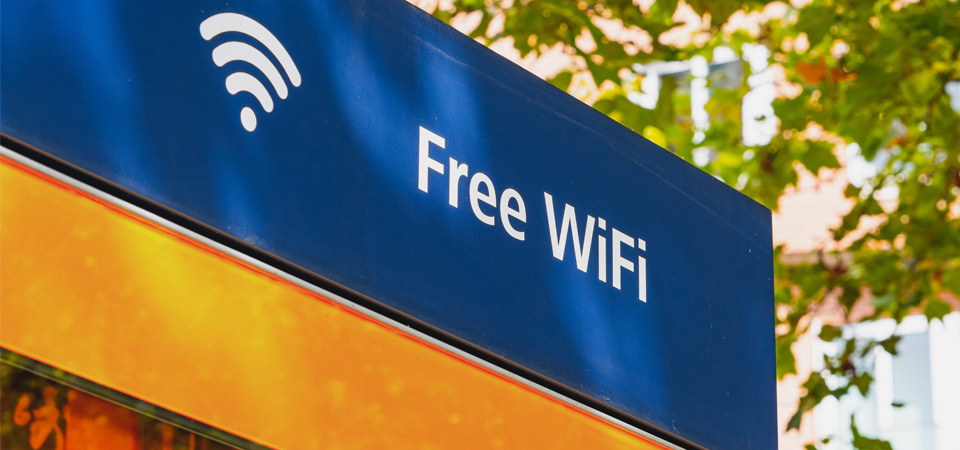
Caution is also advised in everyday digital life. Do not use public WLAN hotspots, as cybercriminals can read data or redirect you to fake login pages. Avoid online banking and online shopping as much as possible while on vacation. If it is necessary, use your mobile data connection. Using a third-party WLAN is only safe if you encrypt your data transmission using a Virtual Private Network (VPN). Never leave mobile devices unattended. Activate the automatic device lock and use a secure lock code so that unauthorized persons cannot gain access.
How to Use a VPN
A VPN creates a secure tunnel for your internet traffic, especially useful on public Wi-Fi. To use a VPN choose a reputable provider (look at online reviews and avoid free services). Most VPNs offer apps for laptops, smartphones, and tablets which can enable you to protect all your devices with a single subscription. After choosing a provider you can follow their installment and usage instructions to safer browse the internet.
![]() Stay in Touch
Stay in Touch
Check in with trusted people at home from time to time and inform them about your further travel plans and how to reach you. On the other hand, share current travel experiences and photos on social media only with selected people. If necessary, ask fellow travelers not to publicly announce that you are on vacation, as such information can increase the risk of burglaries.
Your Personal Checklist
Before the trip
- Clarify entry requirements (visa, vaccinations, driver's license)
- Save emergency numbers (emergency services, bank, embassy, blocking numbers)
- Check IDs, driver's license, and credit cards
- Take out international health insurance
- Check reservations for flights, accommodation, and transfers
- Scan/copy documents and store them securely
- Take only necessary valuables, cash, and keys
- Secure devices, update them, and set up a password manager
- Involve neighbors (mailbox, plants, keys)
- Emergency items in hand luggage (e.g. medication)
- Organize safe transfer from the airport
During the trip
- Allow enough time for security checks
- Use the hotel safe and check escape routes
- Divide cash, do not carry valuables openly
- Avoid public WLAN, use mobile data or VPN
- Keep in touch with family, use social media consciously

